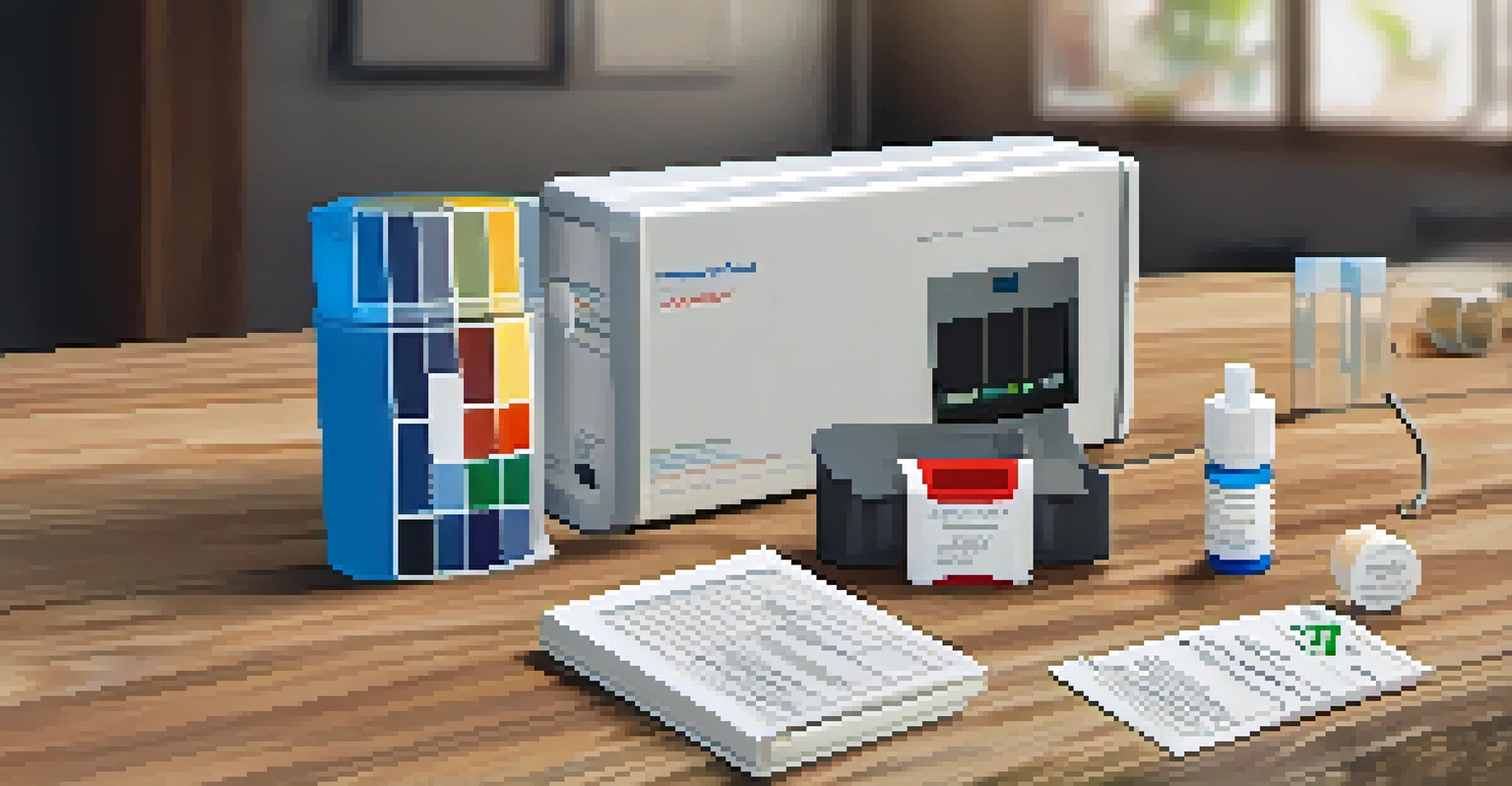The Role of Drug Testing in Cannabis-related Workplaces

The Growing Cannabis Industry and Its Challenges
As the cannabis industry continues to expand, a myriad of challenges arise, particularly regarding workplace safety and compliance. With changing regulations and varying state laws, employers must navigate a complex landscape. This complexity can create confusion about how to implement policies that align with both legal requirements and company culture.
The greatest danger in times of turbulence is not the turbulence; it is to act with yesterday's logic.
Moreover, the stigma surrounding cannabis may lead to misunderstandings among employees and employers alike. Many still associate cannabis use with irresponsibility, despite its increasing acceptance and legalization in various states. This cultural shift calls for reevaluation of workplace policies to ensure they reflect current societal norms.
In this evolving environment, drug testing becomes a critical component for employers seeking to maintain a safe and productive workplace. However, how these tests are administered and interpreted is crucial to fostering a positive work atmosphere while adhering to legal standards.
Why Drug Testing Policies Matter
Having clear drug testing policies is essential for any workplace, but especially in the cannabis sector. These policies help set expectations for employee behavior and ensure a level playing field. When everyone understands the rules, it fosters a sense of fairness and accountability within the organization.

Additionally, effective drug testing policies protect both the company and its employees from potential liabilities. For example, if an employee is involved in an accident, a well-defined drug policy can help determine if substance use was a factor in the incident. This not only safeguards the company legally but also prioritizes the safety of all employees.
Navigating Cannabis Compliance
Employers in the cannabis industry face challenges with complex regulations and the need for clear drug testing policies.
Moreover, clear policies can also aid in recruitment and retention efforts. Job seekers often look for companies that prioritize safety and professionalism, and a transparent drug testing policy can signal that commitment.
Types of Drug Testing Methods Available
There are various methods of drug testing, each with its own advantages and disadvantages. Common methods include urine, saliva, blood, and hair testing. Urine tests are the most widely used due to their cost-effectiveness and ability to detect a range of substances over several days.
If you want to succeed, you have to be willing to be uncomfortable.
Saliva tests, on the other hand, are becoming increasingly popular for their quick results and non-invasive nature. They are particularly useful for detecting recent use, which can be crucial in safety-sensitive positions. However, they may not provide a complete picture of an employee's substance use history.
Blood and hair tests offer more comprehensive insights but tend to be more expensive and less common. Each method has its place, and employers must choose the one that aligns with their specific needs and policies.
Legal Considerations for Employers
Navigating the legal landscape surrounding cannabis and drug testing can be daunting for employers. Laws vary significantly from state to state, with some allowing for recreational use and others maintaining strict prohibitions. This variability makes it essential for businesses to stay informed and compliant with local regulations.
Employers must also consider the implications of the Americans with Disabilities Act (ADA) and how it relates to drug testing. For instance, individuals using cannabis for medical purposes may have protections that could affect an employer's ability to enforce drug policies. Understanding these nuances is key to avoiding legal pitfalls.
Importance of Clear Drug Policies
Well-defined drug testing policies promote safety, fairness, and legal protection for both employees and employers.
Additionally, having legal counsel when drafting drug testing policies can help ensure they align with current laws and best practices. This proactive approach can save companies from future legal challenges and create a more harmonious workplace.
Balancing Safety and Employee Rights
One of the biggest challenges in drug testing is striking a balance between workplace safety and employees' rights. Employers want to ensure a safe environment, especially in industries where impairment could lead to serious accidents. However, overly stringent drug policies can infringe on employees' rights and negatively impact morale.
To address this, companies should consider implementing policies that are both fair and effective. This might include offering education on the effects of cannabis or providing support programs for employees struggling with substance use. By fostering a culture of understanding, employers can promote safety without compromising employee rights.
Moreover, transparent communication about drug testing policies can help alleviate concerns. When employees feel informed and included in discussions about workplace safety, they are more likely to support and adhere to established policies.
Employee Education and Awareness Programs
Education plays a critical role in fostering a safe and informed workplace, particularly in the cannabis industry. Implementing awareness programs can equip employees with the knowledge they need to make responsible choices regarding cannabis use. These programs can cover topics such as the effects of cannabis, legal implications, and company policies.
By promoting education, employers can also dispel myths and reduce stigma surrounding cannabis use. When employees understand the nuances of cannabis, they may be more inclined to engage in open conversations about drug use and its effects on workplace safety.
Future Trends in Drug Testing
Advancements in technology and changing societal attitudes may lead to more innovative and lenient drug testing practices in the cannabis sector.
Additionally, offering resources for employees seeking help with substance use can strengthen the company culture. By showing that they care about their employees' well-being, companies can foster loyalty and create a more positive work environment.
The Future of Drug Testing in Cannabis Workplaces
As the cannabis industry continues to evolve, so too will drug testing practices. With advancements in technology, we may see more innovative testing methods that are less invasive and more accurate. For example, developments in breath analysis technology could provide real-time data on impairment levels, potentially revolutionizing how employers approach drug testing.
Furthermore, as societal attitudes toward cannabis shift, there may be a push toward more lenient drug policies in some workplaces. Companies could adopt a more wellness-oriented approach, focusing on overall employee health rather than strictly policing substance use. This could lead to more supportive environments that prioritize mental health and well-being.

Ultimately, staying ahead of these trends will be essential for employers in the cannabis industry. By continually reassessing their drug testing policies and practices, companies can ensure they remain compliant while fostering a culture of safety and respect.